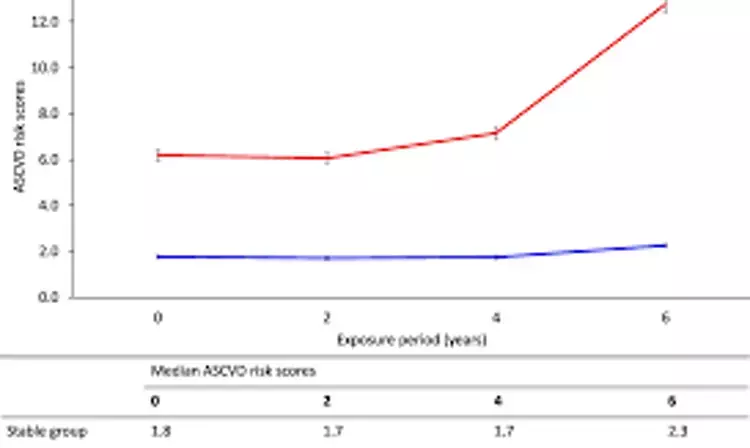- Home
- Medical news & Guidelines
- Anesthesiology
- Cardiology and CTVS
- Critical Care
- Dentistry
- Dermatology
- Diabetes and Endocrinology
- ENT
- Gastroenterology
- Medicine
- Nephrology
- Neurology
- Obstretics-Gynaecology
- Oncology
- Ophthalmology
- Orthopaedics
- Pediatrics-Neonatology
- Psychiatry
- Pulmonology
- Radiology
- Surgery
- Urology
- Laboratory Medicine
- Diet
- Nursing
- Paramedical
- Physiotherapy
- Health news
- Fact Check
- Bone Health Fact Check
- Brain Health Fact Check
- Cancer Related Fact Check
- Child Care Fact Check
- Dental and oral health fact check
- Diabetes and metabolic health fact check
- Diet and Nutrition Fact Check
- Eye and ENT Care Fact Check
- Fitness fact check
- Gut health fact check
- Heart health fact check
- Kidney health fact check
- Medical education fact check
- Men's health fact check
- Respiratory fact check
- Skin and hair care fact check
- Vaccine and Immunization fact check
- Women's health fact check
- AYUSH
- State News
- Andaman and Nicobar Islands
- Andhra Pradesh
- Arunachal Pradesh
- Assam
- Bihar
- Chandigarh
- Chattisgarh
- Dadra and Nagar Haveli
- Daman and Diu
- Delhi
- Goa
- Gujarat
- Haryana
- Himachal Pradesh
- Jammu & Kashmir
- Jharkhand
- Karnataka
- Kerala
- Ladakh
- Lakshadweep
- Madhya Pradesh
- Maharashtra
- Manipur
- Meghalaya
- Mizoram
- Nagaland
- Odisha
- Puducherry
- Punjab
- Rajasthan
- Sikkim
- Tamil Nadu
- Telangana
- Tripura
- Uttar Pradesh
- Uttrakhand
- West Bengal
- Medical Education
- Industry
ASCVD risk scores may independently predict CKD in patients without diabetes or hypertension: Study

ASCVD risk scores may independently predict CKD in patients without diabetes or hypertension suggests a new study published in the BMC Nephrology.
The relationship between atherosclerosis and renal function is well established. Atherosclerotic cardiovascular disease (ASCVD) risk scores reflect atherosclerotic burden, which changes over time. We investigated the association between ASCVD risk trajectories and incident chronic kidney disease (CKD) using data from a large community-based Korean cohort with up to 16 years of follow-up. They analyzed data from 5032 participants without CKD from the baseline survey of the Korean Genome and Epidemiology Study Ansan-Ansung cohort. Participants were categorized into stable or increasing ASCVD risk groups based on the revised ASCVD risk pooled cohort equation over a median period of exposure of 5.8 years. Incident CKD was defined as two consecutive events of an estimated glomerular filtration rate < 60 mL/min/1.73 m2. Results: During a median 9.9 years of event accrual period, 449 (8.92%) new-onset CKD cases were identified. Multiple Cox proportional regression analyses showed that the hazard ratio (95% confidence interval) for incident CKD in the increasing group, compared to the stable group, was 2.13 (1.74–2.62) in the unadjusted model and 1.35 (1.02–1.78) in the fully-adjusted model. Significant relationships were maintained in subgroups of individuals in their 50s, without diabetes mellitus or hypertension. The prevalence of proteinuria was consistently higher in the increasing group than that in the stable group. An increasing trend in ASCVD risk scores independently predicted adverse renal outcomes in patients without diabetes mellitus or hypertension. Continuous monitoring of ASCVD risk is not only important for predicting cardiovascular disease but also for predicting CKD.
Reference:
Lee, H.S., Lim, H.I., Moon, T.J. et al. Trajectories of atherosclerotic cardiovascular disease risk scores as a predictor for incident chronic kidney disease. BMC Nephrol 25, 141 (2024). https://doi.org/10.1186/s12882-024-03583-1
Keywords:
ASCVD, risk, scores, independently, predict, CKD, patients, diabetes, hypertension, BMC Nephrology, Lee, H.S., Lim, H.I., Moon, T.J.
Dr Kartikeya Kohli is an Internal Medicine Consultant at Sitaram Bhartia Hospital in Delhi with super speciality training in Nephrology. He has worked with various eminent hospitals like Indraprastha Apollo Hospital, Sir Gangaram Hospital. He holds an MBBS from Kasturba Medical College Manipal, DNB Internal Medicine, Post Graduate Diploma in Clinical Research and Business Development, Fellow DNB Nephrology, MRCP and ECFMG Certification. He has been closely associated with India Medical Association South Delhi Branch and Delhi Medical Association and has been organising continuing medical education programs on their behalf from time to time. Further he has been contributing medical articles for their newsletters as well. He is also associated with electronic media and TV for conduction and presentation of health programs. He has been associated with Medical Dialogues for last 3 years and contributing articles on regular basis.
Dr Kamal Kant Kohli-MBBS, DTCD- a chest specialist with more than 30 years of practice and a flair for writing clinical articles, Dr Kamal Kant Kohli joined Medical Dialogues as a Chief Editor of Medical News. Besides writing articles, as an editor, he proofreads and verifies all the medical content published on Medical Dialogues including those coming from journals, studies,medical conferences,guidelines etc. Email: drkohli@medicaldialogues.in. Contact no. 011-43720751


